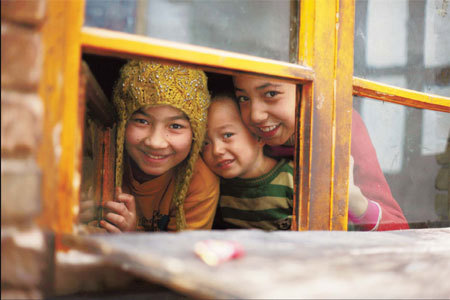Streets of Kashgar
 0 Comment(s)
0 Comment(s) Print
Print E-mail
China Daily, November 27, 2011
E-mail
China Daily, November 27, 2011
Kashgar, or Kashi, is a place where all the Uygur traditions fuse and glitter. Though the city is old, it's still full of vitality with generations of native-born Uygur families displaying their passion for life.
Unlike the country's other old tourist attractions such as Lijiang, where the population changes constantly, this city in the Xinjiang Uygur autonomous region remains a home to pure locals who have lived here for generations. Uygur people are known for their hospitality: That's why they always magnificently decorate their living rooms, where they receive visitors and friends.
In the old town live the traditional craftsmen, who have skills passed down through families for generations. They do their little business in their courtyards. Some have posted a sign on their houses to indicate their trade. The old town has complicated winding roads including some blind alleys. Visitors will have to rely on the floor tiles to guide them. Usually, roads with hexagon tiles are the ways out while square tiles mean an impasse.
Besides the old town, also worth mention is the Etigar Mosque, which is said to be one of China's four largest Mosques. Surrounding the Etigar Mosque are streets jammed with dazzling craft shops, selling instruments, bronze ware, wooden furniture, gold plates, blankets and other goods. These shops usually consist of a store in the front and a workshop in the backyard. Visitors are welcome to enter any of these workshops to watch the craft-making in progress.
The streets are full of fascinating people. Old men are drinking tea or smoking while thinking, young people are busy with their handiwork, apprentices run back and forth. Muslim women wearing veils occasionally walk by. Everybody is quiet and polite. But whenever you have a question, you will always get an answer with admirable details.







Go to Forum >>0 Comment(s)